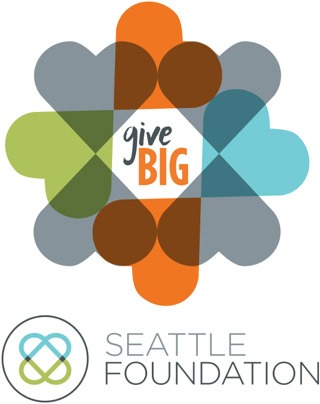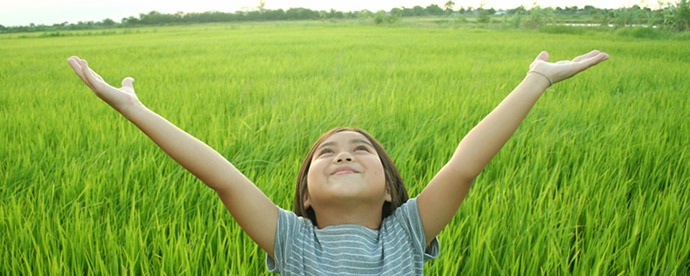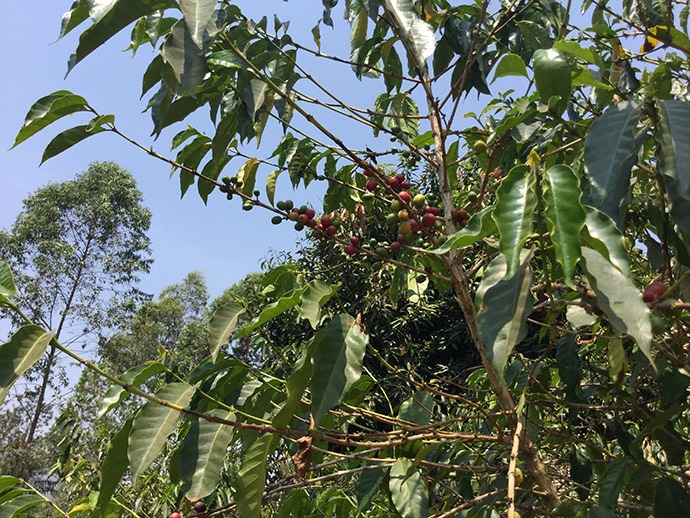Welcome to the June 2017 issue of the Global Washington newsletter.
IN THIS ISSUE
Letter from our Executive Director
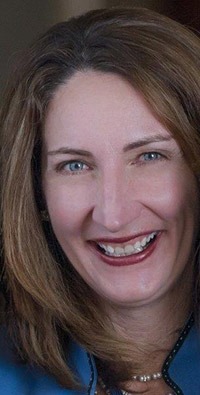 Giving birth to my son and daughter was one of the greatest joys in my life. But it wasn’t easy. I was in labor with my son for 38 hours (I round up to 40), and I had mildly severe hemorrhaging after my daughter was born. Both births were in a hospital and the health of my children and myself was never in danger.
Giving birth to my son and daughter was one of the greatest joys in my life. But it wasn’t easy. I was in labor with my son for 38 hours (I round up to 40), and I had mildly severe hemorrhaging after my daughter was born. Both births were in a hospital and the health of my children and myself was never in danger.
When women give birth in developing countries, the event is not only life-changing, it can often become a struggle for life itself. Thousands of women like Sarah Omega, whom we profile as this month’s Changemaker, have been left broken by the act of childbirth, and have had their perseverance tested by the combination of stigma and fear that accompanies such injuries.
Thankfully, there are excellent organizations, including right here in Washington state, that are deeply committed to supporting women and girls, as well as men and boys, in managing their reproductive health.
Organizations like Planned Parenthood of the Great Northwest and the Hawaiian Islands (PPGNHI), also profiled in this month’s newsletter, not only provide affordable healthcare to women and families in our region, but they also provide funding and technical assistance to projects globally. Most recently, PPGNHI has begun working with another GlobalWA member, VillageReach, on ways to reduce HIV infection in girls and young women in sub-Saharan Africa.
Recognizing the importance of women’s health is a personal issue and a global issue. I hope that you will learn more about the health challenges and renewed opportunities for women in developing countries through these articles and at a panel discussion we will be hosting on June 7th.
Global Washington will also be tracking information leading up to the 2017 London Summit on Family Planning, organized by the U.K. Department for International Development, the UN Population Fund and the Bill & Melinda Gates Foundation. According to a concept note by the organizers, the summit will focus on ways to accelerate progress towards the Sustainable Development Goal of universal access to sexual and reproductive health by 2030.
Also, look for more on the topic of family planning from our friends at Washington Global Health Alliance later this month. WGHA’s new President and CEO, Dena Morris, will take a closer look at how investing in voluntary family planning pays dividends in the economies of developing countries.

Kristen Dailey
Executive Director
Back to Top
Issue Brief
Global Reproductive Health at Risk
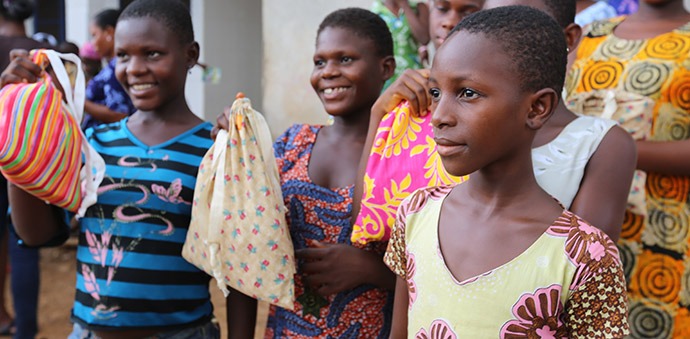
Photo: Days for Girls
Investments in reproductive health services have proven to be a highly cost-effective way to reduce extreme poverty globally. According to The United Nations Foundation, not only does access to voluntary family planning saves lives it also “reduces poverty, promotes environmental sustainability, increases security, and allows women to pursue educational and income-generating opportunities.”
Unfortunately, many reproductive health needs go unmet throughout the world, often with tragic results. Globally, more than 800 women and girls die each day from preventable causes related to pregnancy and childbirth, including unsafe abortions. And for every woman who dies in childbirth, 20 more will suffer debilitating childbirth-related injuries like obstetric fistula.
Reproductive health is a cross-cutting issue that encompasses everything having to do with the human reproductive system across all life stages. People who work in reproductive health services make sure that girls have access to menstrual pads, so they are more likely to stay in school. They educate families about the benefits of delaying child marriages, and thus early pregnancy, which can take a life-long toll on the health of adolescent mothers and their babies. They provide counseling and care for pregnant women infected with Zika. They conduct cervical cancer screenings for women in rural areas. And they ensure at-risk populations have access to HIV/AIDS screening and treatment.
Reproductive health workers do all this and more, while at the same time having to overcome societal taboos and stigma, threats of violence, a lack of stable funding, and to top it off, the high-stakes politics surrounding family planning and abortion services.
The Mexico City Policy
The Mexico City Policy is a U.S. government policy that originally required foreign non-governmental organizations (NGOs) that receive U.S. global family planning assistance to certify that they do not “perform or actively promote abortion as a method of family planning” with non-U.S. funds. It’s important to note that before the Mexico City Policy was established, foreign organizations were already barred from providing abortion services using U.S. funds.
Because the meaning of “actively promote” is unclear, organizations that are afraid of losing U.S. aid funding interpret this prohibition broadly, avoiding even the word “abortion,” let alone using their own non-U.S. funds to provide abortions or refer women to safe, legal abortion providers. This is why those who oppose the policy refer to it as the “global gag rule.”
On January 23rd, President Trump expanded the policy to apply to all of U.S. global health assistance, including funds that also support childhood vaccinations, as well as treatment for HIV/AIDS, malaria, Ebola, and other infectious diseases. According to PolitiFact this is approximately $9.7 billion, or “about 15 times as much money as the United States spends on family planning, which was the core program affected across all three previous Republican administrations.”
While foreign organizations could agree to drop any activities related to abortion in order to continue to receive U.S. funding, the integrated nature of health services, particularly in rural areas, makes this especially difficult.
A broad coalition of organizations, including several GlobalWA members, have publicly opposed the expanded policy, saying that it “interferes with the doctor-patient relationship by restricting medical information healthcare providers may offer, limits free speech by prohibiting local citizens from participating in public policy debates, and impedes women’s access to family planning by cutting off funding for many of the most experienced health care providers who chose to prioritize quality reproductive-health services and counseling over funding that restricts care and censors information.”
Despite the contraction of U.S. funding for family planning globally, European governments and others continue to invest in this important area. Organized by the U.K. Department for International Development, the United Nations Population Fund and the Bill & Melinda Gates Foundation, the upcoming 2017 London Summit on Family Planning in July will focus on ways to continue making progress toward the Sustainable Development Goal of achieving universal access to sexual and reproductive healthcare services by 2030.
* * *
The following Global Washington members are working to save and improve lives in developing regions through their work on reproductive health:
ACT for Congo
ACT for Congo improves health for women and their communities through partnership, capacity building and advocacy. We identify change-agents and help them identify opportunities and resources which empower them as they change the future of DR Congo. Our partner’s peer educators create music, drama and use their own stories to teach reproductive health and rights in schools, faith communities, marketplaces and by radio and local television. http://www.actforcongo.org/
Adara Development
Adara Development is focused on improving health and education for women, children and communities living in poverty. Its expertise is in maternal, infant and child health; and remote community development. Adara’s work reaches tens of thousands of people living in poverty each year through service delivery, and countless more through its knowledge sharing program. Adara is in the process of scaling its global health work in order to contribute to the end of preventable deaths of women, children, adolescents and particularly newborns. http://www.adaragroup.org/
Bill & Melinda Gates Foundation
The Foundation aspires to help all people lead healthy, productive lives and is dedicated to discovering and disseminating innovative approaches to addressing extreme poverty and poor health in developing countries. It is working to bring access to high-quality contraceptive information, services, and supplies to an additional 120 million women and girls in the poorest countries by 2020 without coercion or discrimination, with the longer-term goal of universal access to voluntary family planning. http://www.gatesfoundation.org/
Days for Girls International
Days for Girls creates a more dignified, free and educated world through access to lasting feminine hygiene solutions. Through volunteers, through enterprises, and through public and private partnerships, Days for Girls is working to shift how women and girls see themselves and are seen by their communities. The organization offers girls and women new life choices and spurs narrative change, by providing sustainable hygiene solutions, health education, and income-generation opportunities. https://www.daysforgirls.org/
One By One
One By One is a Seattle-based non-profit organization dedicated to the elimination of obstetric fistula worldwide. The organization partners with communities to develop and support holistic fistula treatment and to increase access to safe childbirth for all women. https://www.fightfistula.org/
OutRight Action International
OutRight works to bring visibility to the struggles and expose discrimination and violence against the LGBTIQ community. For example, the organization brings the voices of the LGBTIQ community to the United Nations and helps advocates build networks that empower lesbian, bisexual, trans and intersex women to ensure that they are not excluded from broader discussions around global health. https://www.outrightinternational.org
PATH
PATH is an international organization that accelerates innovation to save lives and improve health, especially among women and children. PATH’s health solutions reach an average of 150 million people per year in more than 70 countries, addressing a range of global health challenges from malaria to diabetes to reproductive health. For 40 years, the organization has mobilized thousands of cross-sector partners to help countries tackle their greatest health needs, empowering people to transform their own health and futures. https://www.path.org/
Planned Parenthood of the Pacific Northwest and the Hawaiian Islands (PPGNHI)
PPGNHI draws upon its expertise as a leading provider of sexual and reproductive health services and comprehensive sexuality education to build the capacity of partner organizations around the world. PPGNHI believes that sexual and reproductive rights are basic human rights and that everyone should have access to quality health care and education. https://www.plannedparenthood.org/planned-parenthood-great-northwest-hawaiian-islands
Back to Top
Featured Organization
Planned Parenthood of the Great Northwest and the Hawaiian Islands (PPGNHI)
By Heidi Breeze-Harris
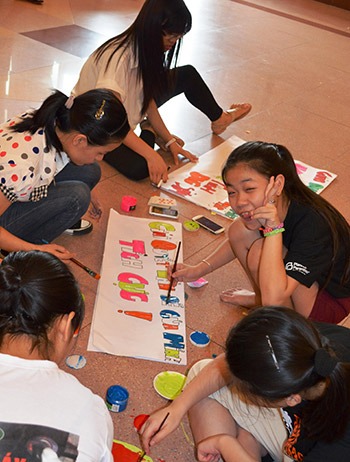
In Vietnam, a group of peer educators create signs with messages about sexual and reproductive health for a large educational event. (Credit: Susan Steckler/PPGNHI).
Planned Parenthood of the Great Northwest and the Hawaiian Islands (PPGNHI) provides reproductive health care services and education to people in Alaska, Hawaii, Idaho and Western Washington— the largest geographic region of any Planned Parenthood affiliates in the United States. Since 2001, PPGNHI’s Global Programs have circled the globe, reaching Africa, Asia, and Latin America.
Global Programs has offered funding and technical assistance to projects in low-resource settings including Cameroon, Ecuador, the Dominican Republic, Laos, and Vietnam.
“We bring expertise in our core competencies, including sexual and reproductive health services like family planning and prevention of sexually transmitted infections, and providing comprehensive sexuality education for adolescents, to a global context,” said Diane Bushley, PPGNHI’s Global Programs Manager. “And while each country context is different, our programs can adapt to local needs and values.”
In Vietnam, the sexual health education programming offered by our local partner is quite progressive, offering sex education to younger students than in many other countries. Working with youth between 11and 13 years in age is a unique opportunity for PPGNHI to support age-appropriate education for this important but often underserved group. PPGNHI’s in-country partner, the Centre for Creative Initiatives in Health & Population (CCIHP), launched a peer education program in 2014. The CCHIP peer educators conduct large group education sessions, a less common approach for PPGNHI. This adaptation has been a learning experience because the large group communication sessions are culturally appropriate for Vietnam.
For CCIHP, learning how to implement an adaptation of PPGNHI’s peer education model at six middle schools in Hanoi has enhanced their programs. The effort has increased the capacity of local youth to engage peers and adults, and created new communication channels for sexual health education.
In 2016, CCIHP reached 4,200 students in six schools through their education sessions, leading to a significant increase in young people’s knowledge about sexual and reproductive health and gender in the rapidly changing but relatively conservative context of Vietnam, where discussion about sexuality is often avoided. The CCHIP initiative has also helped both students and adults feel more comfortable talking about sexual and reproductive health.
“Working with youth as young as 11-years-old is such an opportunity,” said Bushley. “They are interested in the information and articulate about what they learn.” One student noted, “After this program, I found that there is nothing to be ashamed of in learning about reproductive health because everybody gained knowledge which will help them prevent risks for themselves.”
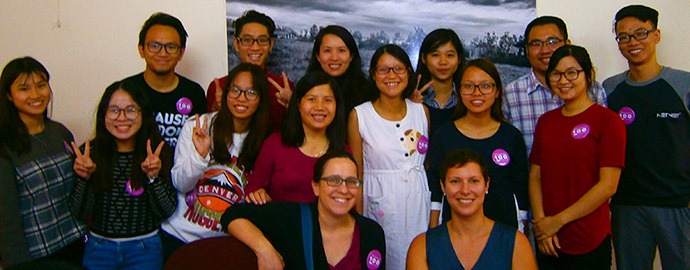
PPGNHI with CCIHP trainee staff during a training on inclusivity in sexuality education and strategies for improving sexual and reproductive health among LGBTQ youth. (Credit: Tu Anh Hoang for PPGNHI).
The most recent project in the Global Programs portfolio is in Malawi, in partnership with another Global Washington member, VillageReach. The collaborative effort was funded in 2016 by the Dreams Innovation Challenge, which intends to reduce HIV infection in girls and young women in ten sub-Saharan African countries.
VillageReach and its partners launched the mobile health hotline CCPF, a Chichewa acronym for Health Center by Phone, in Malawi in 2011. CCPF was originally designed specifically for maternal and child health and has since expanded in scope to cover all general health topics. Through a unique partnership with the Malawi Ministry of Health and Airtel, Africa’s largest mobile carrier, CCPF will be available nationwide by the end of 2017. Despite this tremendous growth and success, VillageReach found that the hotline service was not adequately reaching adolescents. Specifically targeting the unique needs of adolescents’ health is critical because young women and adolescent girls represent the largest population of those newly infected with HIV in sub-Saharan Africa.
VillageReach saw the opportunity for PPGHNI to bring their expertise designing youth-friendly sexual and reproductive health services to the CCPF project.
“Too often in global health we talk about maternal health without considering that many of the pregnant women and women of reproductive age are also teenagers. Developmentally, adolescents require a different approach when it comes to outreach and interventions, especially when talking about their sexual and reproductive health. We are excited to work closely with PPGNHI whose deep expertise is essential to strengthening CCPF as a youth-friendly health service,” said Jodi-Ann Burey, Program Manager for VillageReach.
To begin their partnership, VillageReach and PPGNHI conducted an extensive assessment to determine the specific needs of adolescents and sexual and reproductive health content and services in the CCPF project context. Based on that needs assessment, Village Reach and PPGHNI have created CCPF for Adolescents, which will employ specially-trained health workers to provide information and advice to adolescents and will also establish partnerships with over a dozen health facilities to increase young people’s access to health center services and sexual and reproductive health commodities.
CCPF’s new adolescent module will be launched in June 2017 and will cover issues such as pregnancy prevention, STI/HIV prevention and management, menstrual hygiene, and partner and parental communication. The CCPF for Adolescents hotline module will benefit more than 22,000 girls and women ages 15-24 and 11,000 men ages 20-24. The health center partnerships are expected to bring 40 percent more girls between the ages of 15-19 to facilities for care.
PPGNHI’s Global Programs have come a long way since they first began in 2001. “Our board of directors have a strong interest in global issues and they believe that the goals of equity and social justice extend beyond our national borders,” says Bushley. “We are thrilled to work in partnerships, like with VillageReach, to bring our technical expertise to international projects. Needs for sexual and reproductive health services and education are significant. We want to help meet those needs, not just in our own backyard, but globally too.”
Back to Top
Changemaker
Sarah Omega, One by One
By Heidi Breeze-Harris
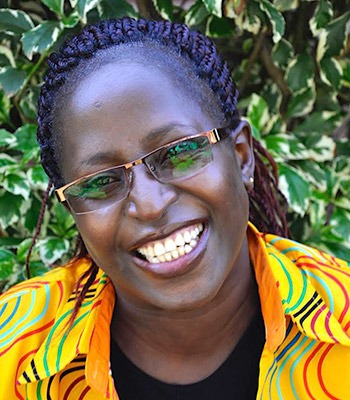
Sarah Omega. Photo: One by One.
“After what happened to me, I said to myself, ‘I can bring a change.’” This is a quote often used by Sarah Omega, when giving speeches about her experiences as an obstetric fistula survivor. Obstetric fistula is a devastating childbirth injury. The World Health Organization estimates that obstetric fistula affects approximately 2 million women worldwide with 50,000-100,000 new cases each year.
Obstetric fistula is caused by obstructed labor, which means that the baby cannot descend through the birth canal due to breach presentation, the baby’s position, or a mismatch between the size of the baby’s head and the size of the mother’s pelvic opening, also known as cephalopelvic disproportion. Worldwide, 8 percent of women will experience obstructed labor. The primary intervention to relieve obstructed labor is timely access to a caesarean section. And while women in the developed world usually have access to this care, women and babies in the developing world often die of complications related to obstructed labor because of limited access to care.
For women in places like rural Kenya, care is limited or unavailable for a variety of reasons including poverty, distance, women’s lack of decision-making power in their healthcare choices, and lack of supplies or health professionals at health posts. Of the women who survive obstructed labor, 90 percent will have lost their babies during childbirth, and some will leak urine and/or feces, uncontrollably, through a hole that has formed during the long labor. These women are often cast out of their homes and told they are cursed. Due to stigma and ill health, they cannot work, and they suffer high rates of depression and suicide. And yet, obstetric fistula can be repaired with a surgical procedure costing an average of $500. Fistula repair surgery, in effect, gives a woman her life back.
Sarah Omega is the Let’s End Fistula Program Manager for One By One. She is originally from rural western Kenya. Sarah knows the realities of obstetric fistula all too well. At the age of 19, she became pregnant as a result of rape. She went into labor at her aunt’s house. Her labor was obstructed and needed medical assistance, but no one in the household had even $1 for bus fare to the hospital.
Even though Sarah had been in labor for 21 hours, she and her aunt walked to the hospital. Once at the medical facility, Sarah waited another ten hours to be seen by a doctor. After 31 hours of labor, the doctor finally came, but by that time her baby boy had already died, and Sarah was dying too. An emergency c-section was performed to remove the stillborn baby and to save Sarah’s life. Thus began Sarah’s journey from impoverished fistula survivor to internationally renowned maternal health advocate.
After her harrowing childbirth experience, she began leaking urine uncontrollably. She did not know why. Doctors told her there was no hope for treatment. She sank into a deep depression for 12 years before she met Dr. Hillary Mabeya, a fistula surgeon who explained that her condition could be treated. “I remember asking him, ‘Am I the only one who has this problem?’ Dr. Mabeya told me that I was one of thousands of women suffering in Kenya. I couldn’t believe it. Once I was healed, I knew I had to help other women to be treated.”
When Sarah had recovered and she was able to reopen her hair salon, she began talking with her clients about fistula. Soon she was saving a few extra shillings here and there in order to pay for travel to remote areas of western Kenya. She would make presentations to churches, youth groups, and at village meetings to raise awareness about fistula. “At that time, I was just beginning in this work. I would do anything. I would go anywhere so that people would listen to me,” Sarah said.
Sarah’s charisma, commitment, and passion propelled her into the international spotlight. In 2009, the UN Population Fund brought her to Washington D.C. to speak to members of the United States Congress about the importance of American aid funding for maternal health issues like obstetric fistula. At that same meeting, Sarah connected with One By One for the first time. In 2011 Sarah joined One By One’s staff as the Kenyan Program Manager.
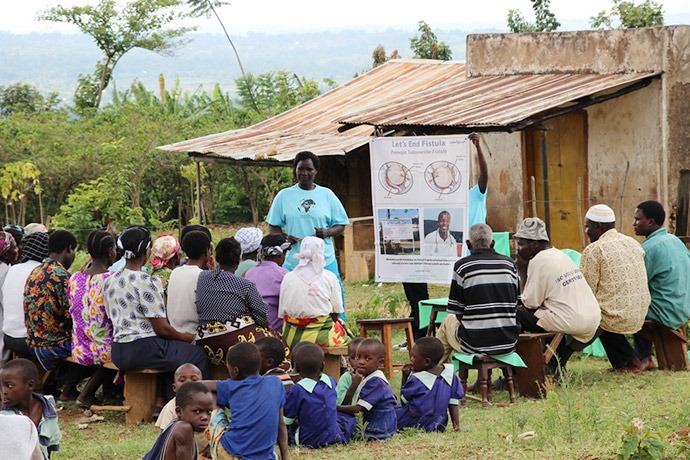
Fistula outreach in rural Kenya. Photo: One by One.
With Sarah’s help, One By One partners with local communities in western Kenya to develop and support holistic fistula treatment and increase access to safe childbirth for all women. As Sarah’s experience shows, holistic fistula treatment is extremely complex. When working to assist fistula patients, Sarah faces difficulties even finding affected women because they are hiding after experiencing intense stigma. She must solve issues of transportation for women who live in remote areas. She must explain the medical system, fistula surgery, and build trust with women and families, many of whom have never accessed formal medical care, much less undergone a surgical procedure.
To meet these challenges, Sarah Omega has recruited and trained over 30 Regional Representatives who work for the Let’s End Fistula program. Most of the Representatives are former fistula patients themselves. These women, and some men, go door-to-door in their local communities looking for fistula survivors and educating families about safe childbirth practices. One By One has treated women as old as 90 and as young as 11. Some patients have only had fistula for several months and some women have suffered for over 50 years. Each of them has the same question as Sarah did, “Am I the only one to suffer this fate.”
Since 2012, the Let’s End Fistula program, under Sarah’s leadership, has reached 275,000 people with education and provided holistic fistula treatment for 1,000 women.
Reintegration is a crucial component of holistic care for women who have suffered from fistula. Many women, even once they are physically healed, remain isolated from their families and communities. As a result of the stigma they experienced, they suffer higher rates of mental health and self-esteem issues. Under Sarah’s direction, One By One launched Phase II of the Let’s End Fistula program in early 2017. Phase II aims to empower fistula survivors to improve their lives and trains them to become safe motherhood advocates in their communities.
Prevention will be the key to ending fistula. “Who better to advocate for safe childbirth than the women who have lived through the trauma of fistula,” says One by One’s International Program Director, Carolyn Anderman.
200 women who were treated in Phase 1 are now in 12 newly formed “solidarity groups” that provide training and peer-to-peer support with psychosocial issues and economic empowerment. The women involved know they are no longer alone. Their voices, collectively, have new power to bring a change. As Sarah says, “These are women who have walked the same journey. Sharing their experiences, it helps them imagine not being stuck, seeing new opportunities, seeing what other people have accomplished. They can see there is a future.” Sarah is living proof that a bright future exists for every woman whose life she touches.
Back to Top
Welcome New Members
Please welcome our newest Global Washington members. Take a moment to familiarize yourself with their work and consider opportunities for support and collaboration!
Key Travel
Key Travel is a Travel Management Company that has specialized in simplifying travel complexity for the humanitarian, faith and education sectors for over 35 years. www.keytravel.com/us
Providence Health
Providence’s Mission is rooted in a deep tradition of reaching beyond our borders to serve those in need. With 32 hospitals and more than 300 clinics, we have the talents and resources to make a substantial impact internationally and, in return, the experience is transformative for volunteers. www.providence.org
Back to Top
Member Events
June 6: Seattle University // Advocacy and Lobbying: What Your Nonprofit Needs To Know
June 8: Bill & Melinda Gates Foundation // Women Hold up Half the Sky
June 9: Washington Nonprofits // ONLINE: The Best Way to Tell a Story
June 19-July 19: Jackson School of International Studies // The International Strategic Crisis Negotiation Exercise
June 28- July 19: Washington Nonprofits // ONLINE: Nonprofit Data for Beginners
Back to Top
Career Center
Senior Media and Publicity Engagement Specialist, Intellectual Ventures
Program Sustainability Manager, Splash
Associate, VillageReach
For more jobs and resources, visit https://globalwa.org/job-board/
Back to Top
GlobalWA Events
June 7: The Status of Reproductive Health Worldwide
June 14: Tech for Global Good: Maximizing Office Technology
June 22: Networking Happy Hour with Friends of GlobalWA, Humanosphere and World Affairs Council
Back to Top
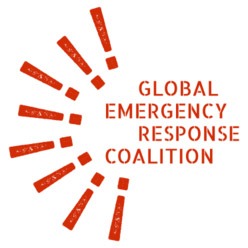 For the first time, eight of the leading U.S.-based international relief organizations have joined forces to urge the American public to donate to the new
For the first time, eight of the leading U.S.-based international relief organizations have joined forces to urge the American public to donate to the new 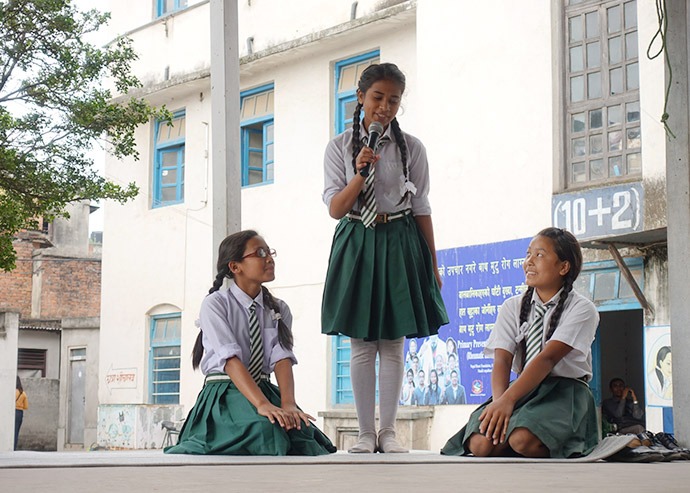
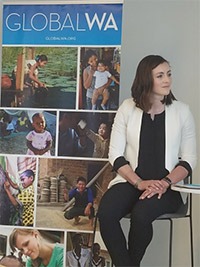
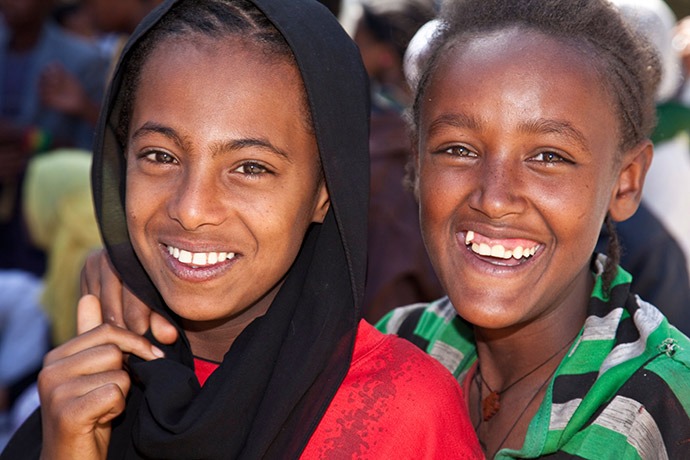
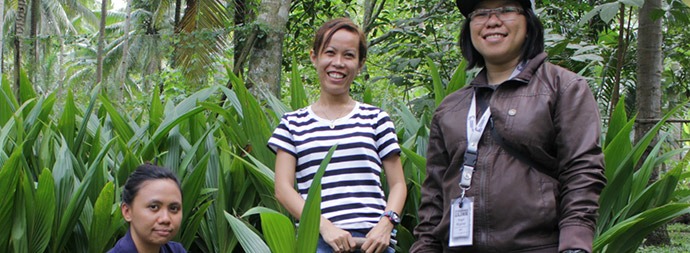
 Giving birth to my son and daughter was one of the greatest joys in my life. But it wasn’t easy. I was in labor with my son for 38 hours (I round up to 40), and I had mildly severe hemorrhaging after my daughter was born. Both births were in a hospital and the health of my children and myself was never in danger.
Giving birth to my son and daughter was one of the greatest joys in my life. But it wasn’t easy. I was in labor with my son for 38 hours (I round up to 40), and I had mildly severe hemorrhaging after my daughter was born. Both births were in a hospital and the health of my children and myself was never in danger.





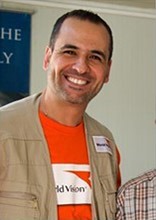 On Tuesday, May 2nd Global Washington hosted a small discussion as part of its newly launched “Voices from the Field” event series. Khalil Sleiman, a member of World Vision’s Global Rapid Response Team, presented on the current humanitarian crisis in the Middle East.
On Tuesday, May 2nd Global Washington hosted a small discussion as part of its newly launched “Voices from the Field” event series. Khalil Sleiman, a member of World Vision’s Global Rapid Response Team, presented on the current humanitarian crisis in the Middle East.